
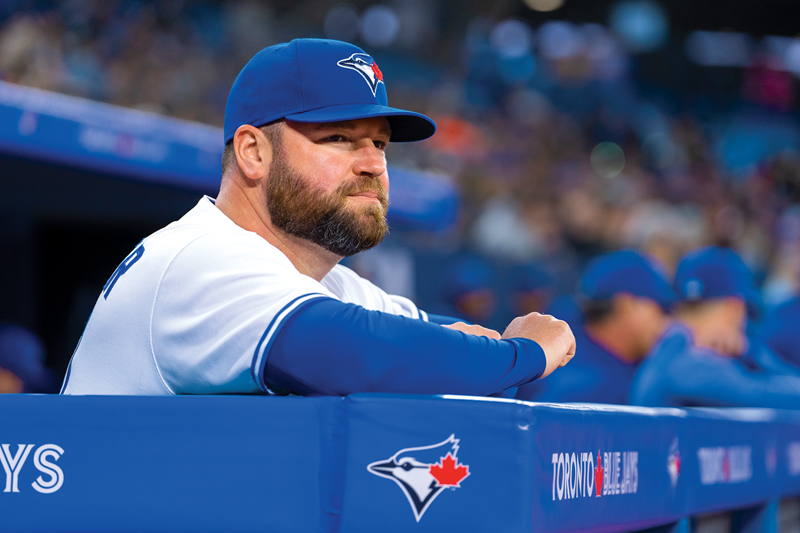

From Blue Hen to Blue Jay
John Schneider’s journey from UD catcher to MLB manager was 16 years in the making
March 28, 2024
Under crystal-clear Florida skies, two men in blue hoodies grabbed their gloves for a catch near the dugout. As members of the Toronto Blue Jays coaching staff, they were loosening their arms ahead of a Major League Baseball spring training workout.
One was Don Mattingly, whose New York Yankees playing career nearly earned him a plaque in the National Baseball Hall of Fame and Museum. The other was John Schneider, a Blue Hen who spent his boyhood in Lawrenceville, N.J., idolizing the legendary first baseman otherwise known as Donnie Baseball.
These are the “pinch yourself” moments that still astound Schneider, who begins his third year as the Blue Jays’ manager this spring. A UD-baseball-player-turned-MLB-club-manager, Schneider follows in the footsteps of Lee Elia, AS60, manager of the Chicago Cubs and Philadelphia Phillies in the 1980s, and Dallas Green, BE56, manager of the Phillies, Yankees and New York Mets between 1979 and 1996.
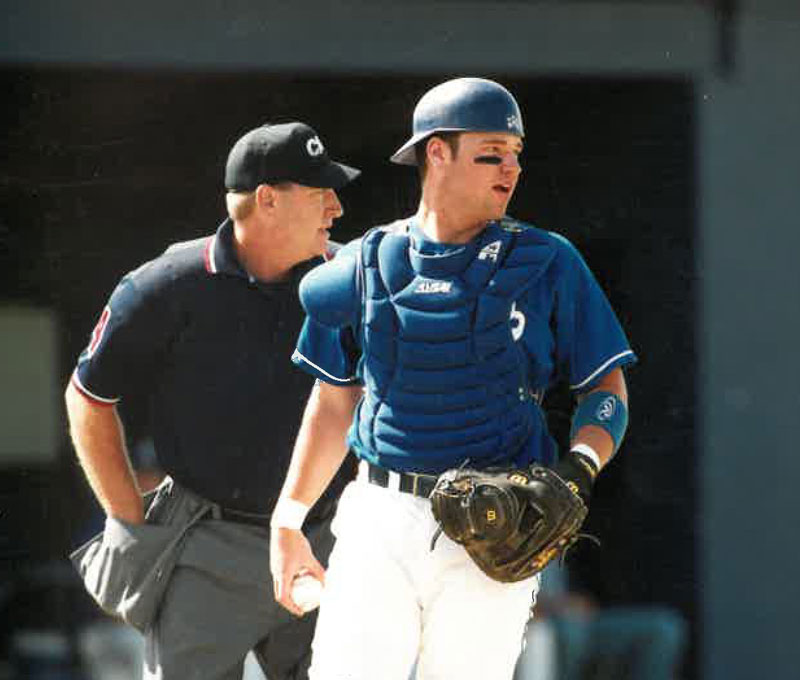
“One thing I always try to keep in front of me is how lucky I am to be here,” says Schneider, 44, whose path from the University of Delaware led him to the pinnacle of professional baseball. Indeed, he credits his time in Newark with teaching two skills vitally critical for any MLB manager—patience and time management.
“When you’re essentially a kid, you’re impressionable,” Schneider says. “All the best traits rubbed off on me. Playing great competition at UD taught me to be overly prepared, always. Working with different people taught me to crave information, make the best decisions and be a good communicator. Early morning workouts taught me the value of being on time and managing my time wisely.”
In times of transition
Schneider arrived at Delaware after switching positions from first base and third base to catcher at the backend of a remarkable high school career. In fact, he had only logged a couple-dozen games behind home plate before developing into an all-American catcher with the Blue Hens.
Playing great competition at UD taught me to be overly prepared, always."
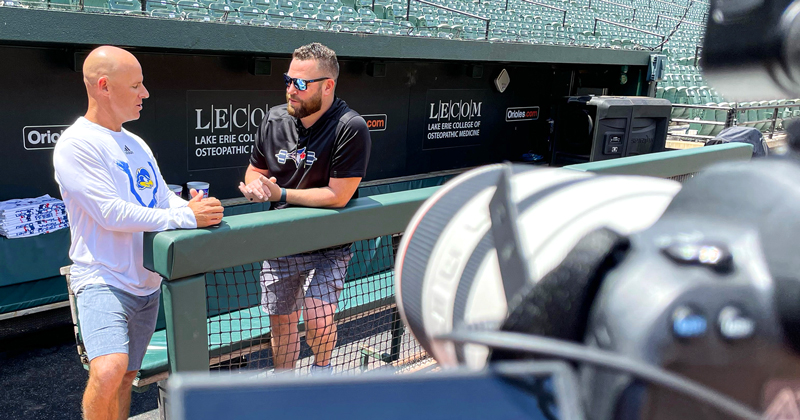
He would play two seasons at UD, first under coaching legend Bob Hannah, and then under Hannah’s successor, Jim Sherman. Both seasons ended with conference championships and trips to the NCAA Regionals. In Schneider, UD had “a leader who could make the people around him better,” Hannah recalls. Sherman noticed “the ideal combination” of listening skills, intelligence and “being in the right place at the right time” that would lead Schneider to success.
As catcher, Schneider’s truly elite skill was his arm. In the 2002 season, he threw out all 29 potential base-stealers who attempted to run against him. But it was a three-game series against Virginia Commonwealth that showcased Schneider’s individual dominance, according to former assistant coach Dan Hammer.
“A runner trying to take second base on Johnny gets thrown out by 15 feet. The next two runners, same thing,” says Hammer, now an admissions counselor at UD. “We didn’t have to hold runners on base the rest of that series. They didn’t want to test Johnny. He was that good.”
One thing I always try to keep in front of me is how lucky I am to be here."
Biding his time
Talent carried Schneider to a professional career in the sport. A 13th-round draft pick of Toronto in 2002, he spent seven seasons in the minor-league ranks and parts of four seasons at the Triple A level—the precipice of the majors. He also sustained seven concussions, perhaps more that went undiagnosed, he says, and endured two back surgeries.
Schneider concluded his playing career after a spring-training game in 2008. He asked his manager to add a second catcher to the roster that day; if Schneider hit a home run, he told his skipper, he would retire. Schneider then hammered a ball over the fence, circled the bases and removed his spikes when he returned to the dugout.
Around that time, Schneider began considering new avenues to remain in the sport. Dick Scott, then the Blue Jays’ farm-system director, recommended managing Toronto’s Gulf Coast League rookie-level club.
John’s curiosity about the game, his appreciation for it and the players, and his way about him—they all made him a coach in the making."
- Dick Scott, former farm-system director for the Blue Jays
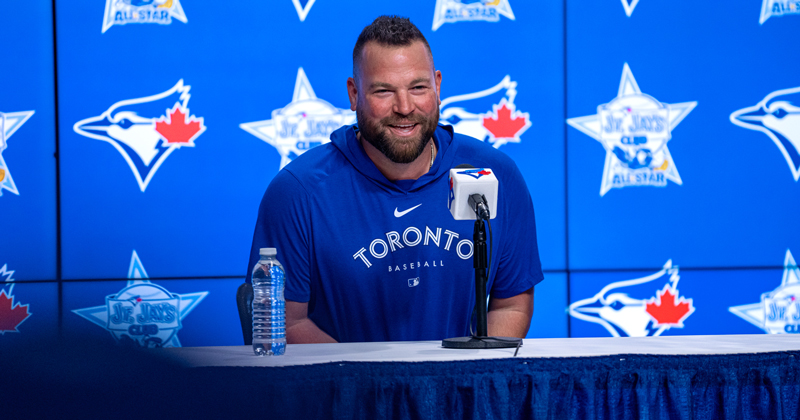
“John’s curiosity about the game, his appreciation for it and the players, and his way about him—they all made him a coach in the making,” says Scott. “We started him on this journey; the rest, that’s a credit to John.”
“You’re paying your dues,” Schneider says of his years in the minors. “You’re not making much money. You’re playing on back fields with a few people in the crowd. Bad hotels, bad food. I remember telling my girlfriend at the time, now my wife, Jessy, ‘I know my sacrifices will pay off later.’ I actually said something akin to, ‘There are 30 MLB managers. I think I can be one of those 30.’”
Schneider’s minor-league journey was equal parts lengthy and successful. He managed teams to championships at three competitive levels before being promoted to the Blue Jays’ coaching staff in 2018.
It had taken 16 years. Finally, Schneider had reached the Majors.
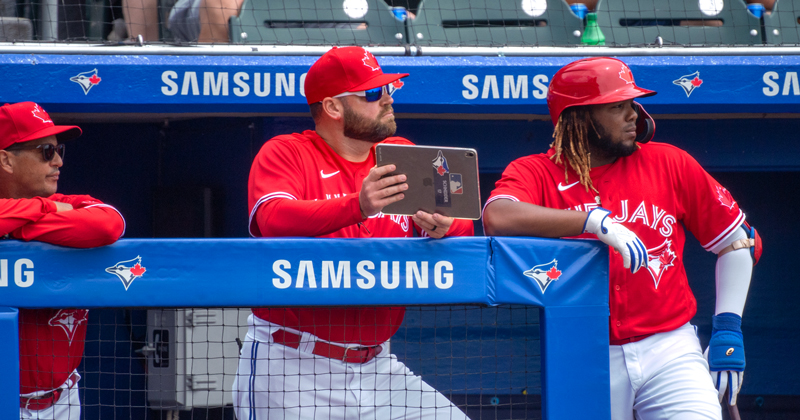
Managing time and talent
Having achieved a lifelong dream, Schneider understands the grind required to reach—and, perhaps more importantly, remain at—the sport’s highest level.
“And then, in 10 seconds, you see how fast the manager’s name on the door can change,” he says, recalling July 13, 2022, when the Blue Jays replaced their manager with Schneider on an interim basis. Schneider guided the seemingly rudderless club to the playoffs with 46 wins in their final 74 games. He was rewarded with a three-year contract extension.
What followed was movie-script material: Schneider served as pitcher for his club’s first baseman, Vladimir Guerrero Jr., en route to Guerrero’s win at last summer’s All-Star Home Run Derby. And Schneider led the Blue Jays, who possess one of the sport’s most-talented young cores, back to the playoffs in 2023.
This all, sometimes, feels like a dream.”
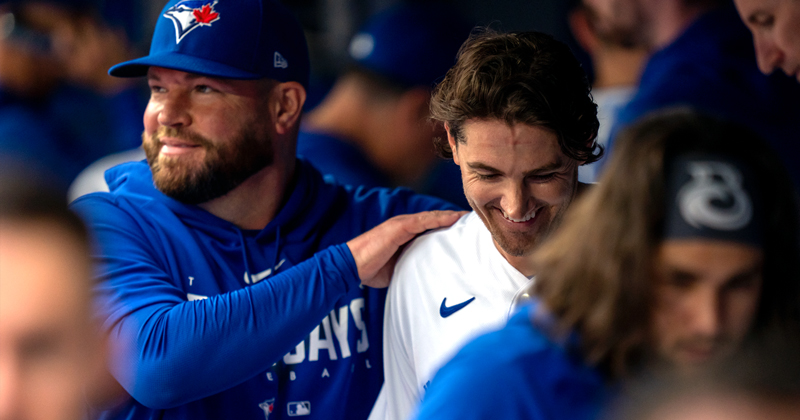
Although the storybook ending failed to materialize when the team exited the playoffs in the first round, Schneider remains undaunted. “You can’t please everybody,” he says, “but you stay who you are, and you understand that not every decision works out the way you wanted.”
Awash in responsibility and routine, the MLB manager seldom allows himself time during a season to take stock of his luck or merely enjoy his surroundings. But there are occasional moments, like a batting practice before a home game last fall when his youngest son, Greyson, was shagging fly balls in the outfield as his oldest son, Gunner, stood beside him. A young fan clamored for the attention (and maybe autographs) of Toronto players and coaches, before handing Gunner a marker and asking for his John Hancock.
It was yet another awestruck moment in a career that has been decades in the making.
“It’s cool to provide that opportunity for them, to raise my boys in a major-league clubhouse,” Schneider says, taking a deep sigh. “This all, sometimes, feels like a dream.”
Contact Us
Have a UDaily story idea?
Contact us at ocm@udel.edu
Members of the press
Contact us at 302-831-NEWS or visit the Media Relations website


